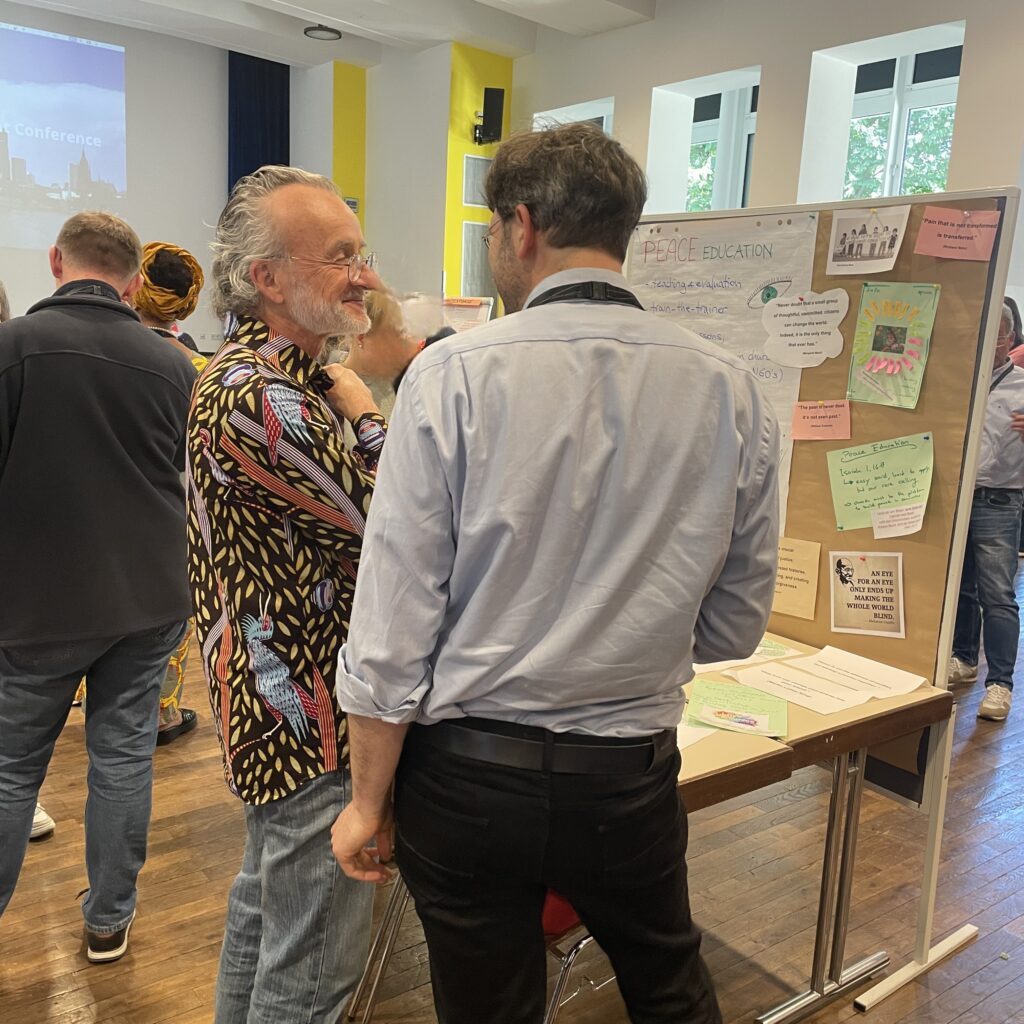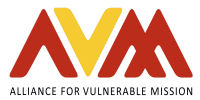The AVM at the Christian Community Development Conference 2025
In early May 2025, the Christian Community Development Conference (CCDC) took place in Frankfurt. The CCDC is a platform for Christian missionaries with a holistic concern and for people in development cooperation with a missionary heart – regardless of where in the world they live and work. This cross-European-wide, multi-day, English-language conference has been held regularly in Germany since 2006, contributing to networking and further training. It is organised by the Association of Evangelical Missions (AEM, Korntal). Quite a few representatives of Micah/Micah Global from very different countries are regular participants. The next CCDC is planned for 2028. More information on the CCDC can be found here.
Frank Paul (member of the AVM advisory board who has been part of the CCDC preparation team for a few years) and Deborah Bernhard (deputy director of the AVM) share their experiences at CCDC 2025.
Report by Frank Paul (AVM Advisory Board)
The participation of women and men from the Global South, who have a lot to say and experience to pass on to us Europeans, is particularly valuable to me. I was also particularly pleased that two thirds of all participants were there for the first time, including many young people, students and lecturers from ‘related’ disciplines.
‘Seeking Peace in uncertain times’ as a conference theme hit the mark in current world events: in addition to good spiritual input, spontaneous interest groups, singing together, praying and communion, there were 2 seminar times, at which people met 3 times each. These were available to choose from:
- Peacebuilding and conflict transformation
- De-polarisation and bridging the divide
- Reconciliation between conflicting parties
- Church as agent for peace & reconciliation
- Network approaches for seeking peace together
- Peace education
- Mental health and trauma healing
- Disaster response in humanitarian crisis
My most impressive encounters were at the book table and over a meal: specific questions about life and team experiences in the field of community development in the slum in Buenos Aires, with indigenous people and their independent churches in northern Argentina and in various milieus in the ‘Platte’ (low-income blocks of flats dating back to socialist housing developments) in Thuringia.
As AVMs, we naturally belong to the CCD network: our convictions and experiences in relation to mother tongues and local resources bring something into the dialogue that does not automatically occur – but is absolutely not a minor matter. The same applies to relevant literature and references on our website. That said, if we are there, we can contribute, if not, we can’t! As always, a book is good, but personal encounters and dialogue have completely different possibilities. It is also a space for us AVM’ers to learn where we can contribute our concerns and our expertise and what that looks like in concrete terms.

Report by Deborah Bernhard (Deputy Director AVM)
For the first time, I had the opportunity to attend the Christian Community Development Conference in Frankfurt. There were several things I found to be significant:
Our new book on Vulnerable Mission for Practitioners was offered free to the participants. About 30 copies were taken.

I initiated and led a discussion on decolonization attended by 13 professors, students, and practitioners:
I led them through questions to spark discussion, such as, what comes to mind when you think of decolonization? How can we foster a more level playing field, and how can we be sure we don’t play a role in continuing the legacy of colonialism? What role do language and resources (money) play in decolonization? The latter question seemed not to have been pondered previously by the group.
My favorite sessions were the track on de-polarization led by Betty Pries of Credence and Co. She provided several different models for understanding how polarization works, and how to overcome it. Using illustrations and her own experience in mediation, she led us through the process and encouraged discussion. At the end, we did a small project and presented it afterward, so that we had a chance to practice teaching the material. The information was totally new to me and definitely will shape how I view and approach polarization going forward.
While standing at our book table, I had many conversations about the importance of language and resources in power dynamics on the mission field. Most were unfamiliar with the ideas that the AVM promotes. I also met several South Africans, one of whom is doing research about racial reconciliation.
One significant conversation was with a man whose wife is doing research on disability in missionary families who are active in ministry. I think this is a topic we need to explore further as the AVM. The plan is for me to meet her via Zoom. Watch this space …
Frank’s report translated with the help of DeepL.com (free version)






